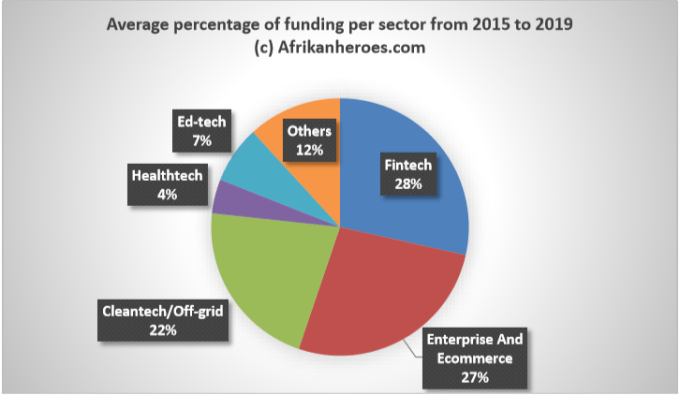A stakeholders’ meeting had come to an end on Friday December 11, 2020 at Kenya’s Energy and Petroleum Regulatory Authority (EPRA)’s office in Nairobi, and all parties have known each other’s positions. But the bottom line now is that a new set of rules, Energy (Solar Photovoltaic Systems) Regulations, 2020, would be enacted after all. In a sweeping move, the Energy and Petroleum Regulatory Authority (EPRA) intends, through the proposed regulation, to regulate the solar energy sector in Kenya, a move seen to try and protect Kenya Power from competition, as revenues continue to fall despite the company enjoying monopoly. Many stakeholders have also described the move as an attempt by EPRA “to police the sun”.

“We are not here to protect Kenya Power. We are licensing people who are going to install the solar panel. If the stakeholders call for a reduction of the fees to be paid then we are going to adopt that, but in no way is this going to shield Kenya Power,” said Epra Principal Renewable Energy Officer Caroline Kimathi, at the meeting.
What Do The Proposed New Rules State?
The rules are launching a strict licensing regime for the solar energy sector in Kenya. For instance, the rules state that a person shall not engage in the importation, manufacture, sale or installation of solar PV systems or solar PV system components without a valid license issued by EPRA.
The rules further go ahead to empower the Authority to from, from time to time, determine by publication of a notice, the types of solar PV components and solar PV systems to which the regulation applies. But as a general rule, all the products must also conform to the Kenya Standard.
“A manufacturer or importer of solar PV systems, components, and consumer devices shall ensure that the products conform to the relevant Kenya Standard set out in the Seventh Schedule or any other subsequent or applicable Kenyan Standards,” the regulations read in part.
Apart from the above, solar energy companies in the country must also first register all consumer devices with the authority. The implication of this is that manufacturers or importers of solar PV consumer devices shall have their products registered by the authority on meeting the requirements of relevant Kenya Standard or other equivalent international programmes for such products. EPRA will also determine which products are allowed into the Kenyan market, by the rules.
Solar Energy rules Kenya Solar Energy rules Kenya

Read also: A New $4 Million Fund Launched For Off-grid Companies In Kenya By AECF
High Licensing Fees And Increase In Cost Of Doing Business For Solar Energy Companies
- If the rules sail through at the end of the day in parliament, it may spell doom for existing and yet-to-exist solar energy companies as the cost of doing business will most certainly increase.
- For instance, under the rules, a solar technician is required to pay between Sh2,250 and Sh6,000 ($20 to $54k) to obtain and renew a license.
- Similarly, a contractor will pay between Sh3,000 ($27k) and Sh6,000 ($53k) for a licence, which will be valid for three years, with practitioners required to apply for renewal one month before the expiry.
- Both technicians and contractors will also be required to obtain insurance policies for their licences of between Sh1 million and Sh10 million ($9000 to $90,000), based on their respective licence categories.
- A fine of Sh50,000 ($450), per day, will be imposed on anyone practicing with an expired licence.
- The stringent proposed regulation also includes a Sh10,000 ($90) fine if individuals delay renewing their license and Sh20,000 ($180) if they do not issue a completion certificate for a project or warranty for installation.
- Additionally, penalties on failure to provide data to EPRA or providing false data will range between Sh5,000 and Sh1 million.
- Licenses are based on the capacity of the system to be installed. License classes SPW1, SPW2 and SPW3 are for solar systems with a capacity of not more than 400 watts, 2kW and 50kW respectively. Only SPW4 technicians will be allowed to install solar grids of any capacity.
- Investors have poured nearly $1 billion into the development of off-grid solar energy and retail technology companies in Africa such as M-kopa, Greenlight Planet, d.light design, ZOLA Electric and SolarHome. Most of these companies are located in Kenya.
To know more about the proposed rules, click here (PDF).
Charles Rapulu Udoh

Charles Rapulu Udoh is a Lagos-based lawyer who has advised startups across Africa on issues such as startup funding (Venture Capital, Debt financing, private equity, angel investing etc), taxation, strategies, etc. He also has special focus on the protection of business or brands’ intellectual property rights ( such as trademark, patent or design) across Africa and other foreign jurisdictions.
He is well versed on issues of ESG (sustainability), media and entertainment law, corporate finance and governance.
He is also an award-winning writer
